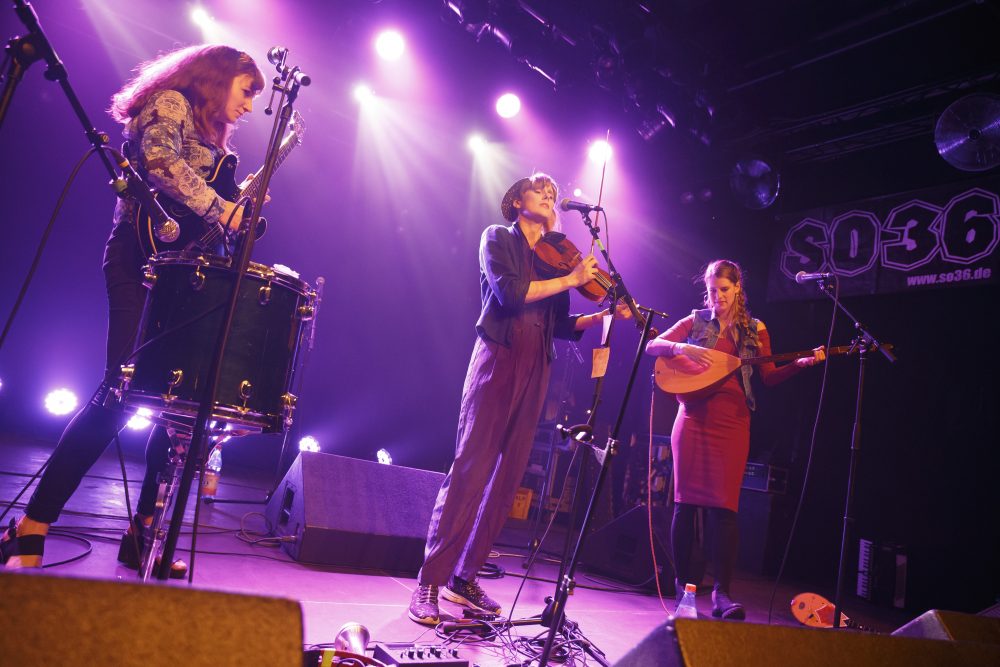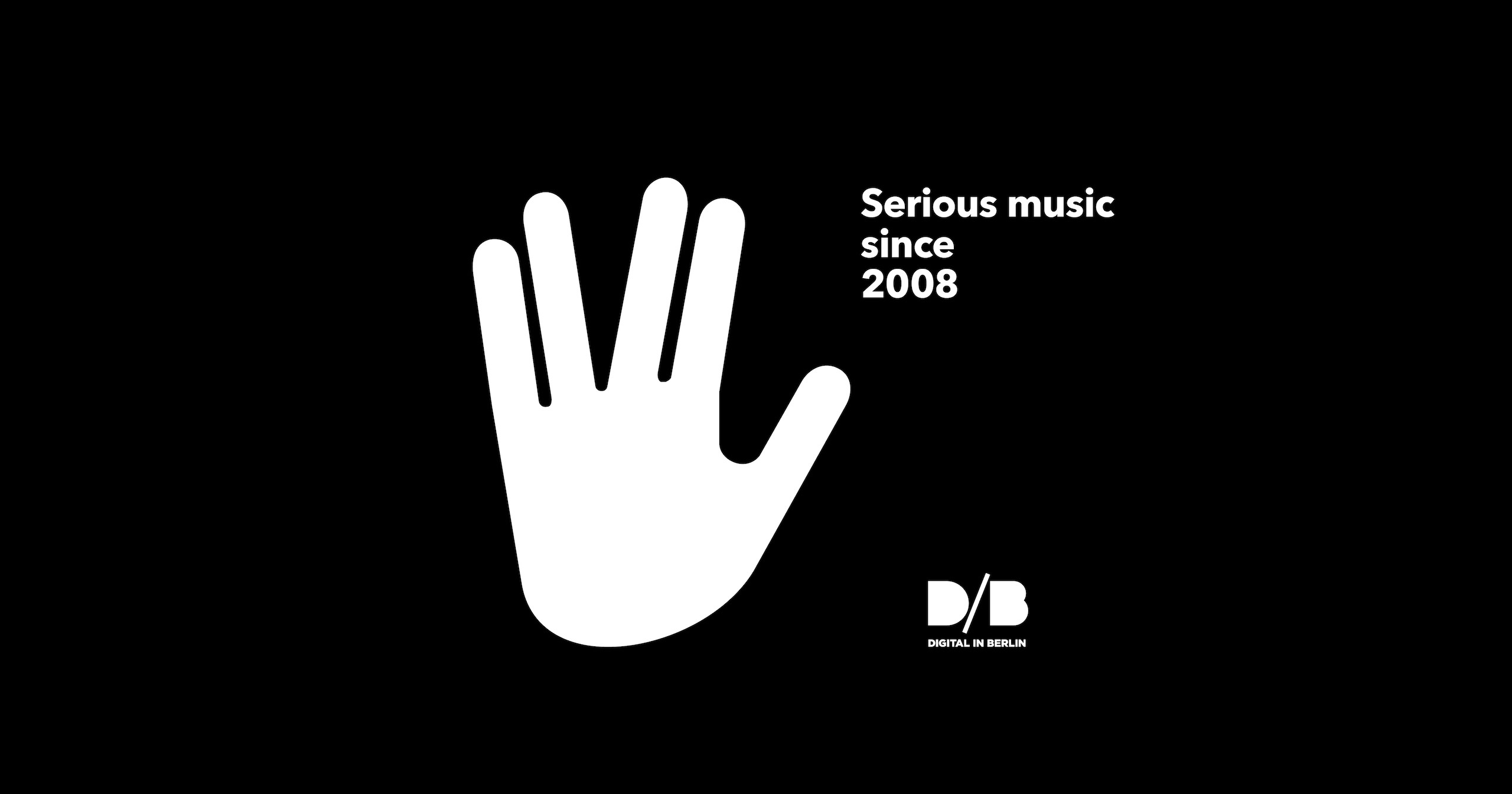OKO sing Bulgarian, Serbian, Bosnian, Polish, Ukrainian, Russian, Laz, Georgian and Turkish folk songs which carry messages that resonate equally here, today. They tell of something universal; something that OKO, as people, can identify with. OKO particularly love to work with songs that are sung from a female perspective, connecting their own experiences with stories from the past. The topics grow mostly out of different social structures, a village context in regions that have little to do with OKO’s urban, 21st Century lives in Central Europe. They tell of young, married, lamenting girls, of furious, hungry mothers, of flirtatious youths who are discovering their sexuality, of yearning for emigration, of carrying water, of deceit and insult, of shame and revenge, of trinkets and beauty, of apples and pears, of mountains and seas… And OKO sit in their Berlin flats. They haven’t been married off, nor have they known hunger, they have never had to carry water and are not familiar with work in the fields, OKO don’t even have a garden… But still OKO feel the strength in uniting our voices, to attempt to understand these stories. Because these stories are no longer confined to their villages; they came to Berlin as Turkish neighbours, Bulgarian classmates, Russian lovers, Laz shop-owners, Serbian and Bosnian friends, Polish co-workers… What did remain in the village is the taste of apples straight from the tree and the smell of earth. OKO are especially inspired by the imagery of nature to which we have no access in our everyday life in the city. These elements form their own interpretations, arrangements and texts. In this way, OKO create a (sound)space for dialogue between cultures and realities.
FACTS:
1: OKO is a Berlin-based polyphonic-voice-pop trio.
2: They are formed out of the Ost-Folks-Polk legends of Kreuzkölln, ‘Tralalka’.
3: The love is real.
QUESTIONS:
1. What is the biggest inspiration for your music?
We are inspired by musical tales from the village that resonate with our personal experiences and carry something universally relatable. We draw inspiration from a hope to connect; with the characters we sing of in their past and distant lives, with their descendants who we meet in our everyday lives in Berlin and also with ourselves and our own patchwork identities.
2. How and when did you get into making music?
Moss: My mum was a groupie for Dire Straights when I was born in Oz, she took me to spain and her lesbian lover sang Flamenco to me. My dad is an old school rock n roller and music engineer who loved Deep Purple and is a comitted musician. I grew up going to Glastonbury Festival and many off-the-beaten-track hippy festivals. I had a Fisher Price Vinyl and my mum had given me records from all over the world. I quit violin to play guitar when I was 12…
Petra: I was sent to music school aged 5 like most kids in Vienna, first we learned notes and only much later we realized what music actually was or could be, the freedom it could give and the history it could transport. At home we would listen to polish folk music ensembles on cassettes and my mother sang partizan songs to me when it was bedtime as she didn’t know any lullabies. That was great, but it took me years to get into singing, first I had to do some violin torture with frustrated teachers for many years.
Emma: When I was growing up there was always music in the house – my mum writes kids’ songs and my brother and I often sang on her demos, my Dad had a huge CD collection which he played with much excitement at every opportunity. At the age of 4 I proudly presented my first own song to my parents – a tragic tale about a big frog who had got lost in the rain and had to find his family again. From then on singing has been at the centre of my life! But the subject matter has developed somewhat…
3. What are 5 of your favourite albums of all time?
M: I dont think in albums, I dont have 5 favorited here are ones that come to mind: Michael Jackson – Thriller and ‘Bad’, Cabaret (soundtrack), 1950s Opera, Stromae – Racine Carrer, Camille – Music Hole, Prince – Purple Rain.
P: Mostly just socialist polyphonic choir albums, Mystery of Bulgarian Voices, Rustavi Ensemble, Mazowsze, Slask… Spice Girls – Spice.
E: Queen- A Night at the Opera, Björk – Post, Willy Mason – Where the Humans Eat, Bobby McFerrin – Circle Songs, Tuneyards – Nikki-Nack, Jeff Buckley – Grace. Sorry I’m not great at counting…
4. What do you associate with Berlin?
M: Love, wild trees and plants, lakes, culture mash up, young, freedom.
P: Strange place with some of the strangest and nicest people, crazy history, grey but colorful, ugly but home.
E: Cycling, drinking beer outside, Schnautze, freedom to be.
5. What’s your favourite place in your town?
M: Plötzensee.
P: Rooftops.
E: I’m more of a out-of-town kinda girl. So any of the more remote lakes on the outskirts are fine for me.
6. If there was no music in the world, what would you do instead?
M: Dance.
P: Can’t imagine that. psychotherapy probably.
E: Cry.
7. What was the last record/music you bought?
M: Spotify Premium.
P: Must have been some Anatolian stuff…
E: Stromae – Papaoutai.
8. Who would you most like to collaborate with?
M: David Byrne.
P: A Georgian male choir.
E: Freddie Mercury. Sadly it’s unlikely to happen…
9. What was your best gig (as performer or spectator)?
M: Red Hot Chilli Peppers, Boyzone, Björk.
P: Our last gig was not bad…
E: Bobby McFerrin live solo – there were no spectators! Is was incredible how Bobby got every person in the room involved in creating the music, it was a truly transformative experience. If you get the chance to see this guy solo – please please do it!
10. How important is technology to your creative process?
We have a love-hate relationship with technology. On the one hand it creates so many exciting possibilities; definitely in terms of sound and instrumentation, but also in terms of what and who we can connect with. Many of the songs we sing together we found on youtube, we use our phones to record and send audio messages to friends all over the world so they can check our pronunciation and give us feedback. The addition of synth and loop station to our set-up has opened a new world to us sonically… But we are also energised and empowered by stepping away from the microphones and uniting our voices, by breathing in the mountain air that was breathed by the people we sing of, or just switching off the digital noise and starting from the beginning.
11. Do you have siblings and how do they feel about your career/art?
M: No, you are all my brothers and sisters
P: My brother is a showman himself, I don’t think he thinks about my music too much. He can get on stage and improvise poetry without having done that before…
E: I have a brother, Joel Davies. He is a sound engineer and producer in London. When we were teenagers we had a hip hop collaboration and now he is mixing OKO’s upcoming debut album. He has always been incredibly supportive and every chance I get to work with him, I jump at.
OKO perfrom at Alter Roter Löwe in Berlin-Neukölln on Saturday, 6th July 2019!
Photo © Montecruz Photo

